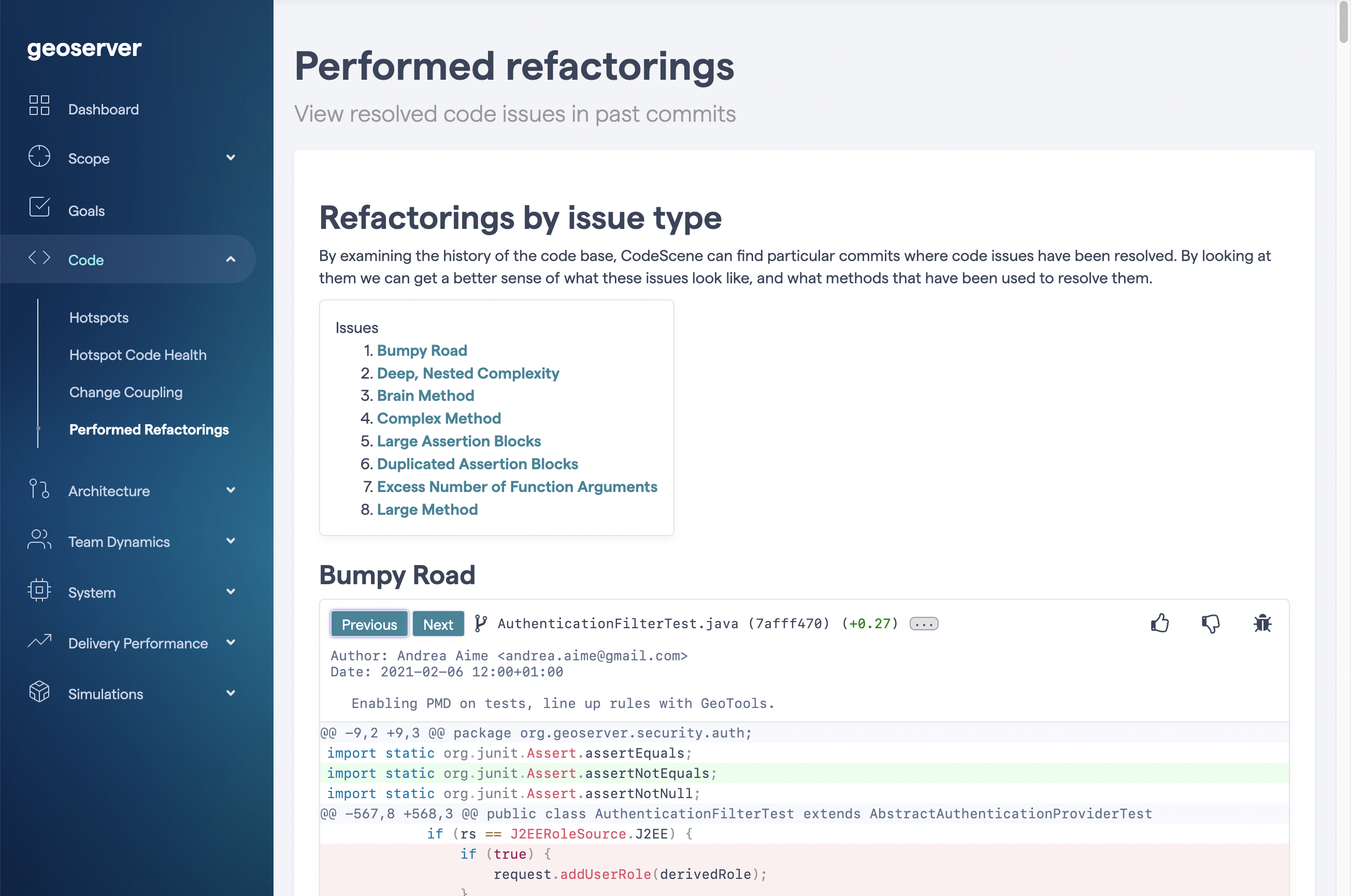Refactoring Recommendations¶
How do we actually solve code health issues?
What are refactoring recommendations?¶
There’s no shortage of books or websites with compilations of refactoring examples. They are typically short and concise, but at the same time they don’t have a strong relationship to your own code. What if they instead could point to patterns and abstractions introduced into your project by your own colleagues?
Just as CodeScene monitors your codebase for code health degradations, it can also detect changes in the opposite direction. How did your colleagues tackle issues like Deep Nested Complexity, Bumpy Road or Complex Method in the past? CodeScene tries to find the best solutions, and compiles them into your project’s own collection of recipes for refactoring.

Fig. 71 A very simple example found by CodeScene that improves code health.¶
Virtual Code Review¶
When performing a virtual code review on a file, CodeScene lists all the code issues found. If CodeScene has found any solutions to a code issue in the past, it lists them alongside the description of the issue.
CodeScene ranks the examples by general readability and how much they improve code health. Further, to make the examples as relevant as possible, CodeScene prefers examples from related files (based on e.g. team composition). That way, the recommended refactorings reflect your team’s domain and preferred style.
Past refactorings¶
It’s also possible to view all past refactorings CodeScene has found, for each issue category. In the project sidebar, under the “Code” header, you will find a link to “Past Refactorings”. CodeScene looks for solutions to issues each time it analyzes your code and, as it finds them, adds them to this page.

Fig. 72 A complete listing of the refactorings found within a project.¶